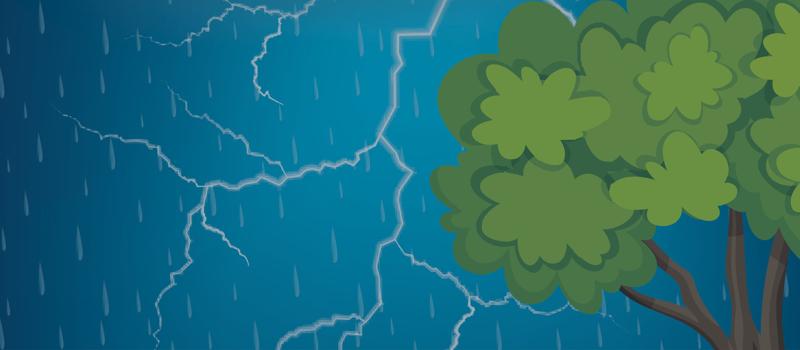How to Prepare Your Yard for a Hurricane
Posted by Mosquito Squad
June 18, 2021

The Atlantic hurricane season runs from June to November annually and covers the Atlantic Ocean, Gulf of Mexico, and the Caribbean Sea. This year NOAA, the National Oceanic and Atmospheric Administration, is predicting a 60% chance that the 2021 Atlantic hurricane season will be above normal. Hurricanes are categorized based on the Saffir-Simpson Hurricane Wind Scale, which takes into account a hurricane’s maximum sustained wind speed and applies a 1-5 rating.
The Saffir-Simpson Hurricane Wind Scale accounts for potential property damage caused by a hurricane. All hurricanes have the potential to be life-threatening and cause irreparable damage, but categories 3 and above are classified as “major” hurricanes under the scaling system. Hurricanes within the 3, 4, and 5 categories have the potential to leave catastrophic damage in their wake.
Hurricane Categories
- Category 1 (minimal): 74-95 mph wind speed
- Category 2 (moderate): 96-110 mph wind speed
- Category 3 (extensive): 111-129 mph wind speed
- Category 4 (extreme): 130-156 mph wind speed
- Category 5 (catastrophic): 157+ mph wind speed
No matter the category, there are a few steps you can take to prepare your yard for a hurricane. Deploy these four steps to help minimize damage and prevent greater issues from arising after the storm.
Trim Your Trees
Cutting away dead or dangling branches will help to prevent them from falling on your home.
Clear Out Debris
Obstructed storm drains prevent water from properly draining, which could potentially cause greater flood damage. This makes clearing all foliage and debris from drains an important pre-storm step.
Assess Backyard Décor
Tie-down large items, close umbrellas, and bring lawn ornaments and children’s toys inside.
Dump Ponding Water
After the storm, dump out ponding water as it could attract mosquitoes and other insects.
While NOAA is predicting an above-normal 2021 hurricane season, their experts do not expect to see the unprecedented levels of storm activity experienced in 2020. Stay safe this season by staying informed and being prepared. Download the FEMA app to receive timely alerts, and visit Ready.gov for a full list of preparation factors to consider.
No matter the magnitude of the storm, it’s not uncommon to see an increase in mosquitoes after heavy rains. Call the pros to help you solve this problem. Contact your local Mosquito Squad today!
